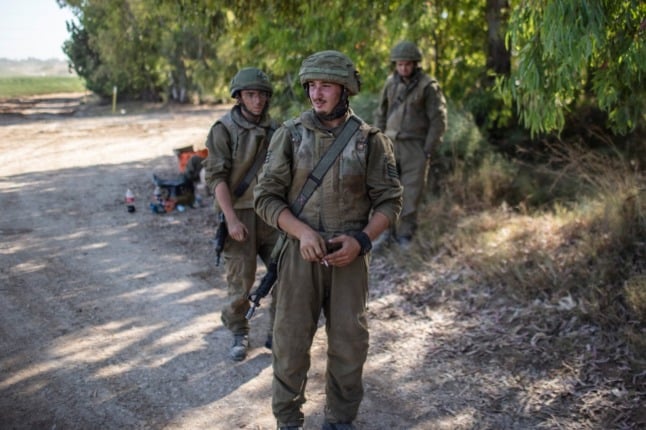Netanyahu, who is in the midst of campaigning for a January election, will arrive in Paris in the morning and have a working lunch with the French leader.
And later in the day, he will also meet French Prime Minister Jean-Marc Ayrault and Foreign Minister Alain Juppe in what will be his first visit to Paris since Hollande took office in May.
The two-day trip is important because it will be Netanyahu's "first opportunity to talk with President Hollande, and he hopes to build a good working relationship with the French leader," a source close to the Israeli leader told AFP.
Since taking office five months ago, Hollande has only spoken to Netanyahu by telephone, whereas he has already twice met Palestinian president Mahmud Abbas – both times in Paris.
The last time Netanyahu visited Paris was in May 2011 when he sought to drum up French support to head off a Palestinian initiative to seek full state membership at the United Nations, which eventually stalled at the Security Council.
This time, their talks were expected to focus squarely on the international standoff over Iran's nuclear programme, Israeli officials said.
"France is a very important country in the Western alliance which is dealing with the Iranian bomb," a senior official told AFP on condition of anonymity.
"Netanyahu clearly wants to talk about the Iranian issue with François Hollande especially after his speech at the UN at the end of September," he said.
In his address to General Assembly, the Israeli prime minister wielded a bomb diagram on which he drew a red line to underline his pleas to Washington to set firm limits on how far Tehran can go with its nuclear programme before encountering a pre-emptive military strike.
Iran denies Israeli and Western suspicions that its nuclear programme is a front for a drive for a weapons capability.
Netanyahu has warned that a nuclear Iran would pose an existential threat to the Jewish state and has repeatedly refused to rule out military action, fuelling speculation that an attack is imminent.
With the rumour mill working overtime, Hollande spoke by phone with Netanyahu in mid-September, urging him to seek a peaceful, diplomatic solution to the Iran standoff.
He also stressed France's determination that Iran should suspend its nuclear programme and respect UN Security Council resolutions demanding a suspension of uranium enrichment, officials said.
Two weeks later, in his UN address, Netanyahu appeared to pull back from the brink, pushing back the deadline until spring or even summer 2013, ostensibly to allow time for international sanctions to work.
A diplomatic adviser to the French president confirmed that Iran "would be one of the subjects raised" during Wednesday's talks, without giving any further details.
"This working meeting will focus on deepening bilateral ties, on relaunching the peace process and the upheavals in the Arab world," he told AFP.
Peace talks with the Palestinians have been on ice for more than two years, but a source close to Netanyahu confirmed the two men would also touch on ways to revive it.
"The only real bone of contention between Netanyahu and Hollande is the absence of negotiations with the Palestinians and Israel's continued settlement," said Denis Charbit, professor of political science at Israel's Open University.
But he said the issue of peace talks was not likely to play a central role in their talks as a result of the relative calm on the ground.
On Thursday, Netanyahu is to travel to Toulouse to attend a memorial ceremony for three children and a French-Israeli teacher at a Jewish school who were shot dead by a gunman who also killed soldiers of North African origin.
"Netanyahu wants to send a message of solidarity with victims of terrorism – both Jewish and non-Jewish," said an Israeli source close to the visit.
"He wants to emphasise the importance of unified international action against terrorism."


 Please whitelist us to continue reading.
Please whitelist us to continue reading.
Member comments